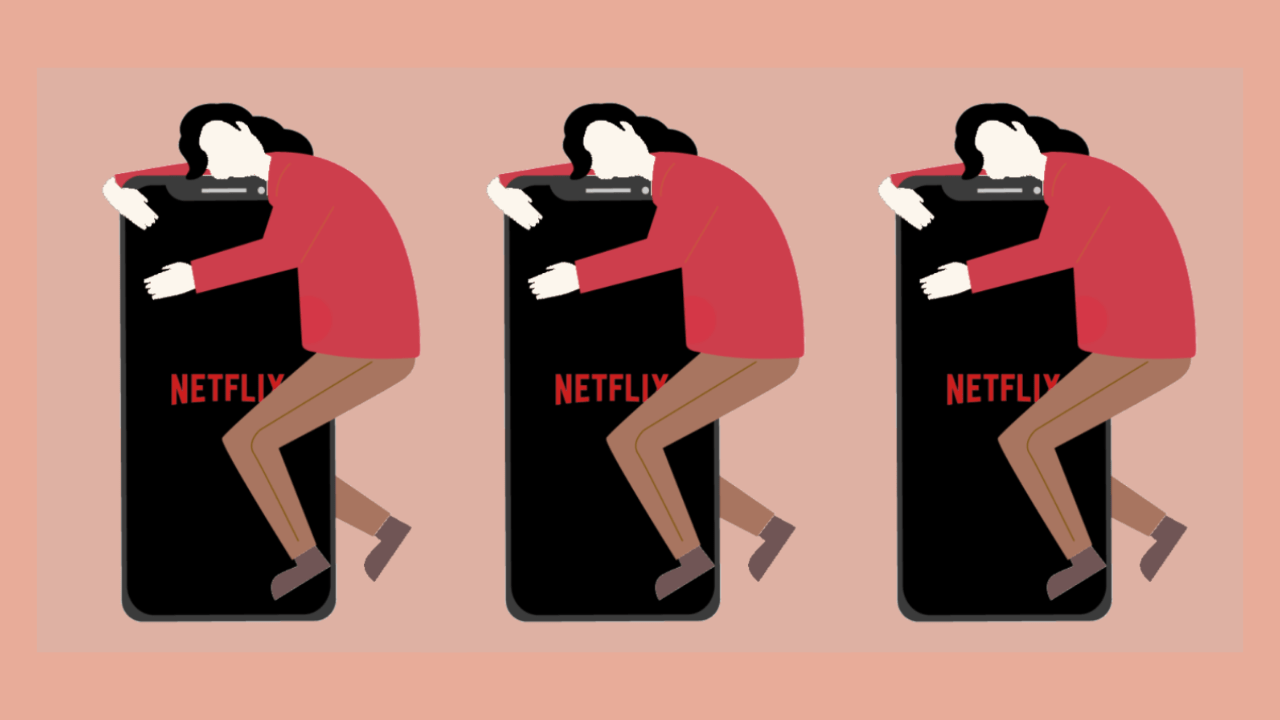A pack of chips, a decadent chocolate and the inevitable and unchanging solace of Netflix. For the past 365 days this has been my evening routine.
The companionship of Tiger King, during the early days of lockdown, to now binging on The Bold Type, I have seen it all from my couch. These shows helped me escape to a glamorous world of feminist magazines and live through the thrill Charles Sobhraj’s killings. The wide spectrum of shows have matched my mood, when I felt the need to learn, escape and mindlessly consume.
While I do recognize the importance of exercising, eating right, getting good sleep, therapy, forming relationships albeit online – disconnecting from the reality of the pandemic for a few hours everyday has been a coping strategy I have resorted to, especially on difficult days.
OTT platforms like Netflix, AmazonPrime or Disney+ are much more than entertainment platforms. They have grown to serve as an injection that helps build a sense of positivity and connection. They enable us to have shared experiences while we remain confined in our homes (and bedrooms).
The belief that “everything will be fine” that is often conveyed in shows like Good Place and Kim’s Convenience Store often give rise to strong positive emotions like hope, joy, and happiness. These positive emotions are viewed to form the building blocks of our wellbeing, Martin Seligman, of UPenn research states that positive emotions, engagement, relationships and accomplishment are crucial elements of well-being. Strengthening these blocks is especially crucial at times like this when good news is scarce. We need to dive into some form of engagement that positively fuels us for another day of survival.
Even though these emotions are experienced through shows the benefits of experiencing these positive emotions have a sustainable impact on wellbeing, Barbara Fredickson from the University of North Carolina, states that experiencing positive emotions although fleeting have long-lasting effects. These emotions serve as vehicles for individual growth and social connection as they build an individual’s personal and social resources like resilience. Needless to say, the most used word in 2020 (after unprecedented) has been resilience as it encompasses all the emotional qualities one needs to survive the emotional strain of the pandemic.
Seligman’s work also identifies engagement and relationships as crucial elements for wellbeing. The constraints of the lockdown have put a significant strain on relationships and the opportunities to engage through older forms of communication. The lives we now lead are sharply distinct from our friends and family with the only unifying factor, the pandemic, also being the cause for our distress. At times like this we have had to try harder, get creative and find new ways to connect. Having shared experiences through shows has given us all several discussion and debating points, these moments of real engagement have helped us forge deeper connections and sometimes new relationships.
As our government re-enters another complete nationwide lockdown, we now know that we are battling against a virus that has not only plagued our bodies but also our minds. It is no longer just a fight for physical survival but also emotional survival, and to make this fight easier, moments of pleasure are often the breath of fresh air we need to strive through another day.
Meet The Author








